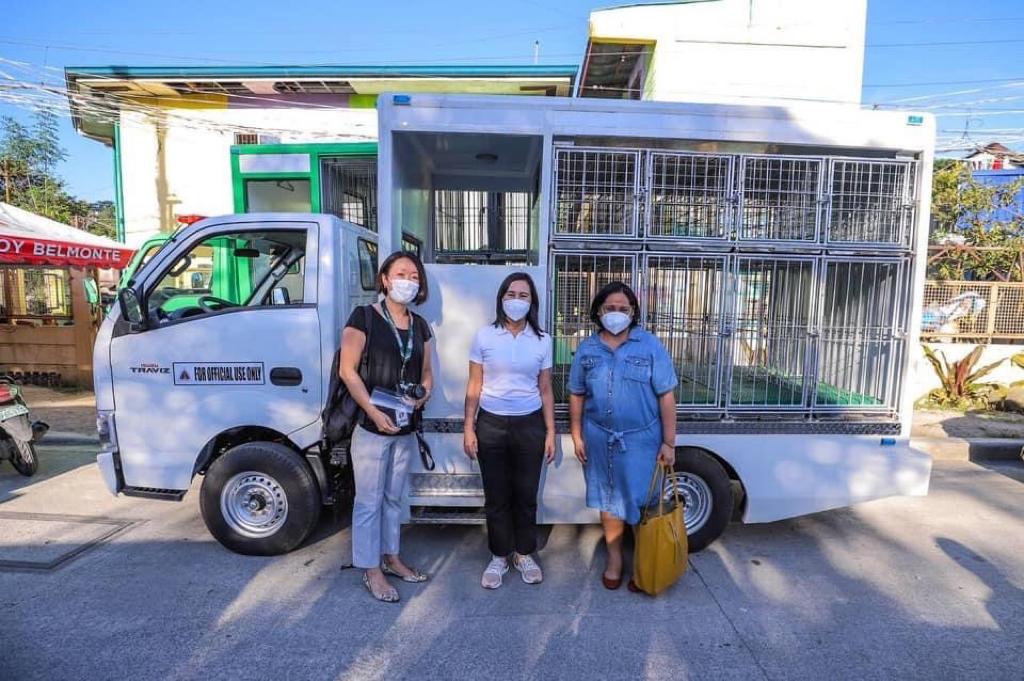
Mayor Joy Belmonte with the City pound truck of the QC Animal Adoption Center
Stray dogs in Quezon City will soon become salutary members of the community as the Quezon City Veterinary Department (QCVD) started training them as service dogs.
Based on the QCVD report, the city rescues up to 57 dogs per day, including those surrendered by their owners. All are sheltered and listed as candidates for rehabilitation and adoption to become pets of QCitizen families, emotional support dogs, or even explosive detection dogs.
“Before training them, our veterinarians make sure that the rescued animals undergo comprehensive assessment, health check, and even temperament test. This is for us to determine if a dog is suitable as a pet or a community service canine,” said Mayor Joy Belmonte.
Each dog will undergo a three-day observation and a Safety Assessment for Evaluating Rehoming (SAFER) test that identifies the dog’s comfort level with restraint and touch, reaction to new experiences including movement and sound stimuli, bite inhibition, behavior around food and toys, and arousal level toward other dogs.
Mayor Belmonte inspecting the new facilities of the QC government Veterinary Department
They will also be screened for common disease conditions such as Parvovirus, Distemper, Transmissible Venereal Tumor and Mange and parasitism. Only healthy dogs will be qualified for the Rehabilitation and Adoption Program.
Likewise, dogs that have satisfactorily passed the assessment are put up for immediate adoption and some are further trained as emotional support and community service dogs and undergo training on basic behavior, obedience and socialization.
“Since the establishment of the QC Animal Care and Adoption Center in November, the city has already partnered with the Quezon City Police District and Bureau of Fire Protection. These agencies will be the first recipients of selected sheltered dogs that they will further train as drug, bomb-sniffing, and rescue dogs,” the mayor added.
According to City Veterinarian Dr. Ana Marie Cabel, the animals are also assigned to trainers that will oversee their daily progress to establish their suitability for placement in different city government-run institutions including community care and rehabilitation facilities.
Aside from these, the city is also collaborating with various animal groups to increase pet adoption and provide every animal a new family.